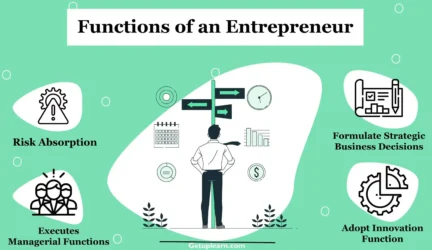Table of Contents
Elements of TQM
Every entrepreneur must set out the relatively straightforward principles to total quality. The following are the elements of TQM:
- Understand Customer
- Motivation
- Clarity of Roles
- Education and Training
- Strong Leadership
- Strategic Quality Planning
- Continuous Improvement
- Teamwork
Understand Customer
Everyone in the organization must understand the customer’s requirements and how the SSI is performing to achieve these requirements. The business must delight the customer by bringing the best at what really matters most to the customers.
Motivation
Everyone within the organization is both a customer and a supplier of someone else. They should be motivated to strive continuously to satisfy customers both internally and externally.
Clarity of Roles
Everyone in the organization should be clear about his role in maintaining quality. TQM is about internal and external each individual in the organization is assigned some job or customer for which be accountable. The mindset of different people within the organization has to be shaped leading to acceptable quality. Members should be involved in solving quality, cost, and production problems.
Education and Training
TQM ends and begins with training. Total employees must not be only educated, and trained but also empowered to participate in all group activities. Employees should be trained to treat humans with respect and consideration. Rational human behavior should be shown in conversation.
Strong Leadership
Although YQM involves every employee of the organization strong and effective leadership must travel vertically. TQM should be led by senior members and horizontally, senior management of the organization should be acting in the union.
A strong relationship will maximize efficiency, and effectiveness, promote excellence prevent errors, and ensure that every aspect of the business is aligned with customer needs. It will lead to the advancement of business goals without duplication or waste of effort. Leaders can establish their credibility with their personal qualities.
Strategic Quality Planning
Be it large small or medium business, planning is always an essential forerunner to action. The entrepreneur must involve and inform the senior colleagues in the quality planning processes and on the other side, seniors must be committed to the idea of TQM. Strategic quality planning will help the project progress flawlessly.
Every pitfall must be considered in advance and planned for the entrepreneur himself or his senior colleagues must play an impartial and rational role. The members attending the meeting should spend enough time depending on the complexity of the matter. They should analyze customer needs, product processes, and processes in preparation for implementing quality control.
Continuous Improvement
TQM is the management process that recognizes that however much we may improve our customers will always expect more from us. Quality management is not a static process and its regular monitoring is necessary.
Teamwork
TQM is an integrated organizational approach that aims to delight customers by meeting their expectations on a continuous basis through everyone involved in the organization.
Everyone with a team spirit has to work on continuous improvement to provide value to customers lack to teamwork. Low-quality corporate culture and weak links can result in a poor-quality product. TQM is firmly established and likely to remain a permanent feature of business and commerce.
Essential Features of TQM
The essential characteristics of an effective TQM system are:
- Every company member, from the CEO to the lowest level employee, is focused on product or service quality. If management is not behind TQM, then it will fail.
- Everyone must have the required training and be familiar with the necessary TQM techniques.
- Anyone can suggest areas for improvement as general operatives will be more familiar with their workstation than anyone else is, valuable ideas for improvement at a production line level can, in many cases, come from line workers.
- All departments are expected to focus on quality and productivity improvement and implement changes in their area.
- In addition, all departments interact with each other to fix common problems in the product or process.
- Collaboration on external issues (end-user defects for example) is expected from all departments.
- Decisions made are based on the best solutions, not on hidden agendas or favoritism.
- Quality becomes a governing part of operations, with decisions that impact quality, rejected immediately, despite perceived cost-savings involved.
FAQs About the Elements of TQM
What are the elements of TQM?
The following are the elements of TQM: Understand Customer 2. Motivation 3. Clarity of Roles 4. Education and Training 5. Strong Leadership 6. Strategic Quality Planning 7. Continuous Improvement 8. Teamwork.



